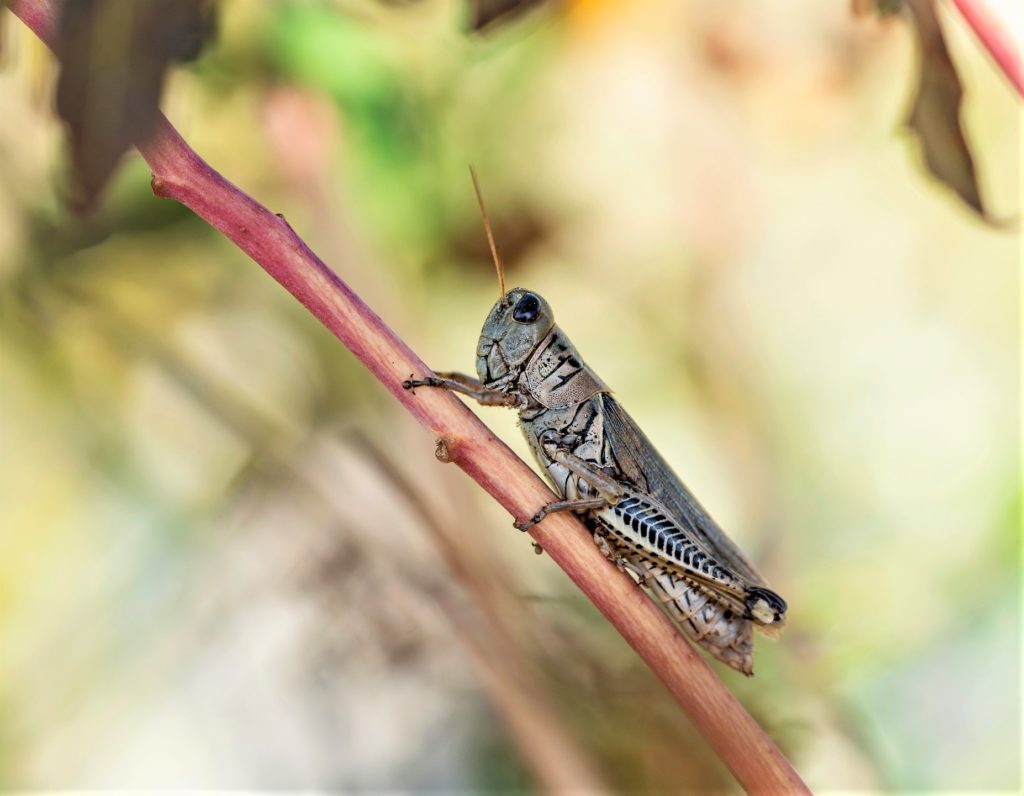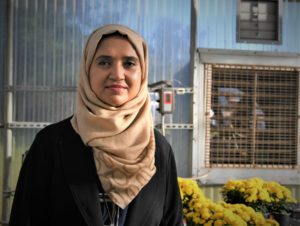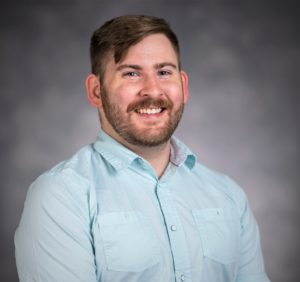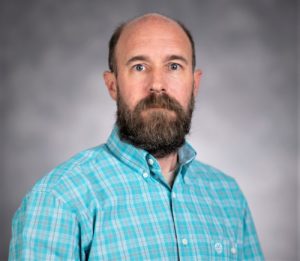New entomologists bolster AgriLife Extension pest programs
Specialists to serve agriculture, urban integrated pest management
Three new entomologists have joined the Department of Entomology and the Texas A&M AgriLife Extension Service to provide integrated pest management expertise to agricultural producers and the public from the Texas A&M AgriLife Research and Extension Centers at Dallas, Overton and San Angelo.

David Kerns, Ph.D., AgriLife Extension state integrated pest management coordinator and professor in the Department of Entomology, said the entomologists will serve regional producers and residents and be affiliated with the Texas A&M AgriLife centers in those locations.
Bryant McDowell and Greg Wilson are integrated pest management program specialists who will be housed at the Dallas and San Angelo centers, respectively, while Rafia Khan, Ph.D., will serve as entomology specialist from the center in Overton.
“Having entomology experts housed at these centers is vitally important to our ability to serve regional needs and produce the greatest impact on localized integrated pest management challenges,” Kerns said. “These entomologists are there to listen to concerns and questions, provide recommendations based on science and conduct collaborative research with that goal in mind.”
New entomologists:
Rafia Khan
Khan is an assistant professor and AgriLife Extension entomology specialist at the Texas A&M AgriLife Research and Extension Center in Overton.

Her primary responsibility is to provide leadership, applied research and AgriLife Extension programming. Her focus is on commercial ornamental nursery crops and residential ornamental and turfgrass integrated pest management.
Kerns said Kahn developed a remarkable integrated pest management system for managing pests and insect-transmitted diseases in commercial tomatoes during her doctoral research.
“We are extremely excited to have Dr. Khan join our faculty,” Kerns said. “She is an excellent applied entomologist, and we look forward to her successes addressing the pest management needs of Texas’ commercial nursery industry and aiding homeowner management of pests in yards and gardens.”
Much of Khan’s past work has revolved around vegetable plants and the pest insects that utilize them as hosts.
East Texas is a hub for nursery foliage and flowering plants. Khan said she has already begun engaging with nursery growers in the area. She hopes to identify opportunities to improve seasonal insect pest management strategies.
Engagement with growers is already producing research opportunities that will allow her to design experiments focused on mitigating the impact of major nursery pests like white flies, mealybugs, thrips and scale.
“We are figuring out how I can work within the seasonal schedule and incorporate management recommendations and produce studies and trials that can let growers know how to best manage their plants and greenhouses throughout the season,” she said. “The first thing we will study is insect distribution, but we will also look to perform trials for various methodologies like biological and chemical controls.”
Khan said she will continue previous research at the center focused on the crape myrtle bark scale and white fly infestations in poinsettias.
“The goal with experiments will be to provide the best options for ornamental growers, whether in an open or greenhouse environment,” she said. “Addressing their problems with insects and insect-related diseases is my goal, and I am looking forward to applying what I know, learning more through my research and passing that knowledge on.”
Khan earned her bachelor’s degree in zoology and master’s in entomology from the University of Dhaka in Bangladesh, a master’s in biology from Austin Peay State University and a doctorate in entomology from the University of Florida.
Bryant McDowell
McDowell joined as an integrated pest management program specialist at the Texas A&M AgriLife Research and Extension Center in Dallas.

McDowell’s primary responsibility is to manage trainings at the IPM Experience House at the center, administer the “Insects in the City” website, and train Texas Master Naturalist and Master Gardener volunteers and others in urban IPM practices, Kerns said.
Kerns said AgriLife Extension views McDowell as a vital addition to address pest management issues in Texas homes and commercial properties, and train pest control operators in implementing integrated pest management.
“We are excited to have Bryant as a member of our IPM team,” Kerns said. “Texas has three of the 10 largest cities in the U.S. and over 22 million urban dwellers with a plethora of pest problems.”
McDowell, a graduate of the Department of Entomology at Texas A&M University, started with AgriLife Extension as an undergraduate student intern for Bexar County in the summers of 2013 and 2014. He graduated with a master’s degree in entomology in 2019.
McDowell said he has been engaging with pest control professionals around the state and is already preparing for IPM continuing education unit programs in San Antonio and Austin.
The IPM Experience House will be a key component of McDowell’s hands-on approach to teaching pest control professionals. He hopes to utilize simulated infestations of common problem insects like bed bugs. The goal is to provide general presentations with specified trainings that will help professionals identify signs and damage by pests found in structures.
“So far, I’ve been focused on establishing a relationship with the pest management companies and traveling for programs,” he said. “I have some goals in mind for the IPM Experience House and how we can utilize the facility to provide solid training for key pest species in a number of ways.”
McDowell said he has been working with Janet Hurley, AgriLife Extension IPM program specialist, Dallas, to provide programming and plan other in-person, online and hybrid resources for professionals and homeowners. The Insects in the City website is one resource he believes can provide go-to information and interactive guides to help homeowners avoid and/or identify potential problems and recommend solutions.
Newsletters, articles and localized pest infestation reports are also resources he hopes can keep professionals and the public informed. He also hopes to put together youth program opportunities at the center like those he helped with as an intern in Bexar County.
“The idea is finding ways to engage with homeowners and the public, whether that is a phone app, the Insects in the City website or providing a field guide for homeowners,” he said. “There are primary goals, but I think there are also opportunities to build on the services we provide.”
Greg Wilson
Wilson will serve as an integrated pest management program specialist at the Texas A&M AgriLife Research and Extension Service Center in San Angelo.

A 10-year Army veteran, he said service is still his priority and he has big plans for the position. He has been busy scheduling events and lectures to meet public demand for knowledge about integrated pest management in agricultural, urban and structural settings.
While his focus is providing expertise and leadership for row crop producers, Wilson said there is a high demand for information on a range of topics, from continuing education courses to the role insects play in crime scene forensics.
“My mission is row crops and broadening the base for supporting producers, including wheat, sorghum and cotton,” he said. “But there is a high demand for knowledge here, and I am working to provide applied, objective-based training and the best customer service I can.”
Wilson said the response from producers has been very positive, and he has a growing number of crop fields where he will conduct research and data-gathering projects, including trapping and application efficacy studies. He is also reinstituting a scouting program for cotton and collaborating with other Texas A&M AgriLife Research and AgriLife Extension experts to produce data for agricultural operations in the region.
“I am taking a customer-driven approach and looking into what producers view as a problem, and the producers have been very receptive and looking to collaborate,” he said. “There is a great need for data on many pests that aren’t the typical problems, and so they are eager to volunteer their fields as trial and test spaces.”
Wilson earned a double bachelor’s degree in agronomy and entomology and a master’s in plant breeding from Texas A&M. He is pursuing a doctorate in entomology at Texas A&M.
“We are extremely pleased to have Greg as a member of our IPM team to serve the Southern Rolling Plains region of Texas,” Kerns said. “He has a wealth of knowledge on crop production and pest management in cotton, sorghum and corn, and is skilled in conducting applied pest management research and coordinating AgriLife Extension activities.”





